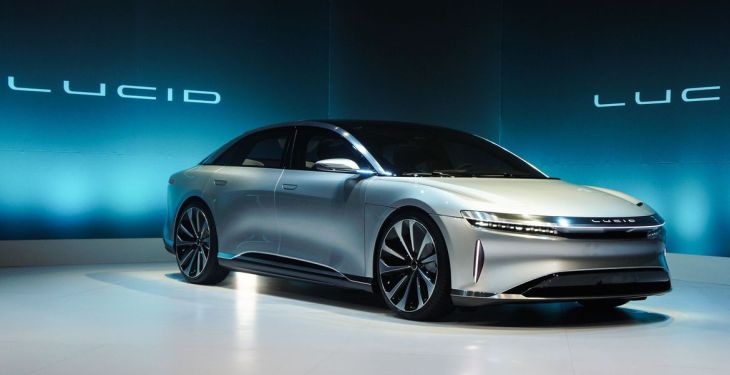Lucid Motors wants to make things very clear: the company isn’t like struggling electric car startup Faraday Future. “Let’s distinguish ourselves first from the scenario at Faraday Future,” Lucid CTO Peter Rawlinson told Business Insider at Classic Car Club in Manhattan.
If you follow the world of electric car startups — the handful of companies all competing to come out with the next big thing in battery-powered automobiles — you’d be forgiven for thinking the two companies are actually very similar.
Both are still showing off prototypes that they hope to get into production soon. Both are staffed by former Tesla engineers, and both count a Chinese billionaire among their backers, according to businessinsider.com.
Actually, it’s the same Chinese billionaire.
A shared investor with Faraday
Since the mid-2000s, many startups have entered the space with promises of creating the next Tesla — a luxury, high-performance, electric car.
Faraday Future is perhaps the most hyped. After months of build-up, the startup disappointed with its first big unveiling at CES in 2016 by only showing a concept car that would never enter production. This year, its unveiling of a working car was marred by malfunctions on stage, and the business is short on cash, losing executives, and just scrapped plans for a second facility in the San Francisco Bay Area.
Faraday, based in Los Angeles, is backed by Chinese billionaire Jia Yueting, the founder of electronics company LeEco. Yueting is also an investor in Lucid Motors — he bought in back in 2014 when the company was still called Atieva. A 2016 Guardian investigation found that several Atieva employees feared Yueting’s involvement in the company, specifically that he would try to merge the company with the now-struggling Faraday Future.
That’s where Rawlinson wants to clear the air. Faraday’s financing troubles — which seem to originate from a cash crunch at LeEco itself — don’t apply here, he said.
“LeEco is a minority investor in our company and was a minority investor as part of our series C funding round,” he said. “We received those funds in our bank, we are absolutely independent of any cash crisis.”
Lucid Motors has also secured funding from venture capital firm Venrock and Mitsui & Co.
Competing with Tesla
Rawlinson was the chief engineer behind Tesla’s Model S, and joined Lucid Motors in 2013 when it decided to pivot from developing battery technology to manufacturing its own electric vehicles. Other engineers that helped work on the Model S, like Eric Bach, Tesla’s former director of engineering, are now working on Lucid Motors’ first vehicle: the Lucid Air.
Rawlinson was at the Classic Car Club last Thursday to show off the company’s very first Lucid Air prototype: a 1,000-horsepower, luxury electric car with a 315-mile driving range that will cost over $100,000. (Lucid will also make a base vehicle with a range of 240 miles and output of 400 horsepower starting at $52,500.)
Production of the Lucid Air is slated to begin in late 2018 at the company’s manufacturing facility in Casa Grande, Arizona. Construction of the actual plant is expected to start the second quarter of this year.
The silver sedan, with its futuristic LED headlights and spacious interior, was meant to convey a very clear message: the Lucid Air is not ‘vaporware.’
“We’ve got a product which is running, which is driving, which is there,” Rawlinson said. “We’re going to take you for a ride in that. Can any others do that?”
